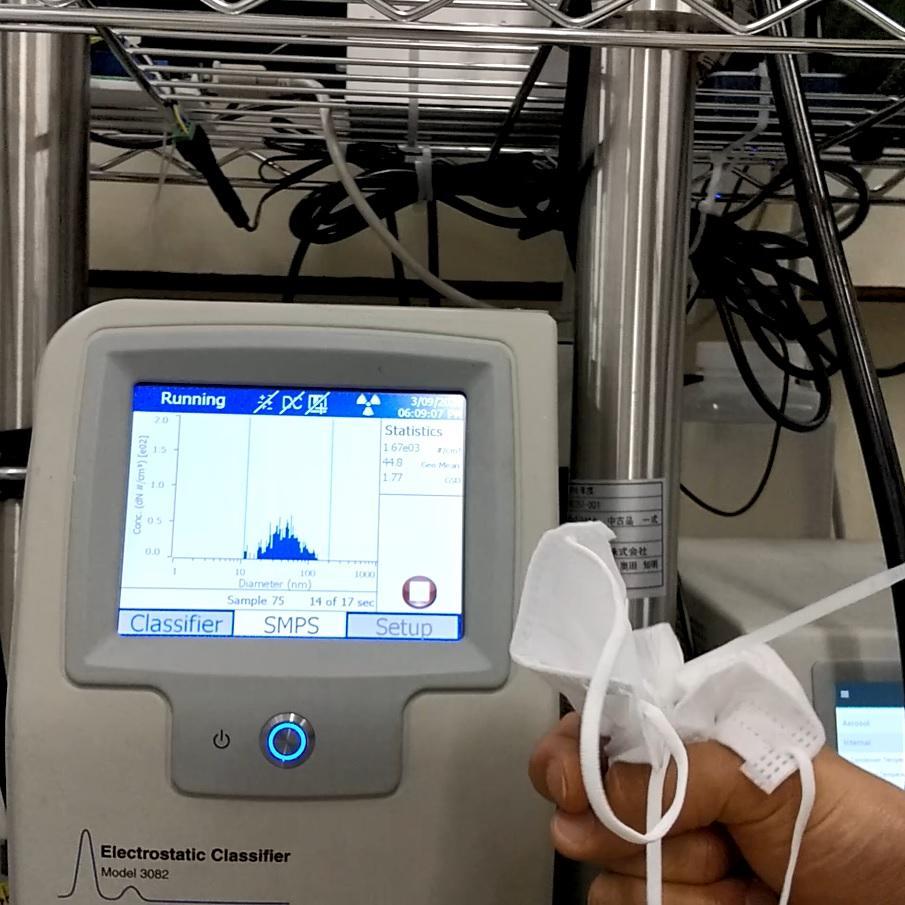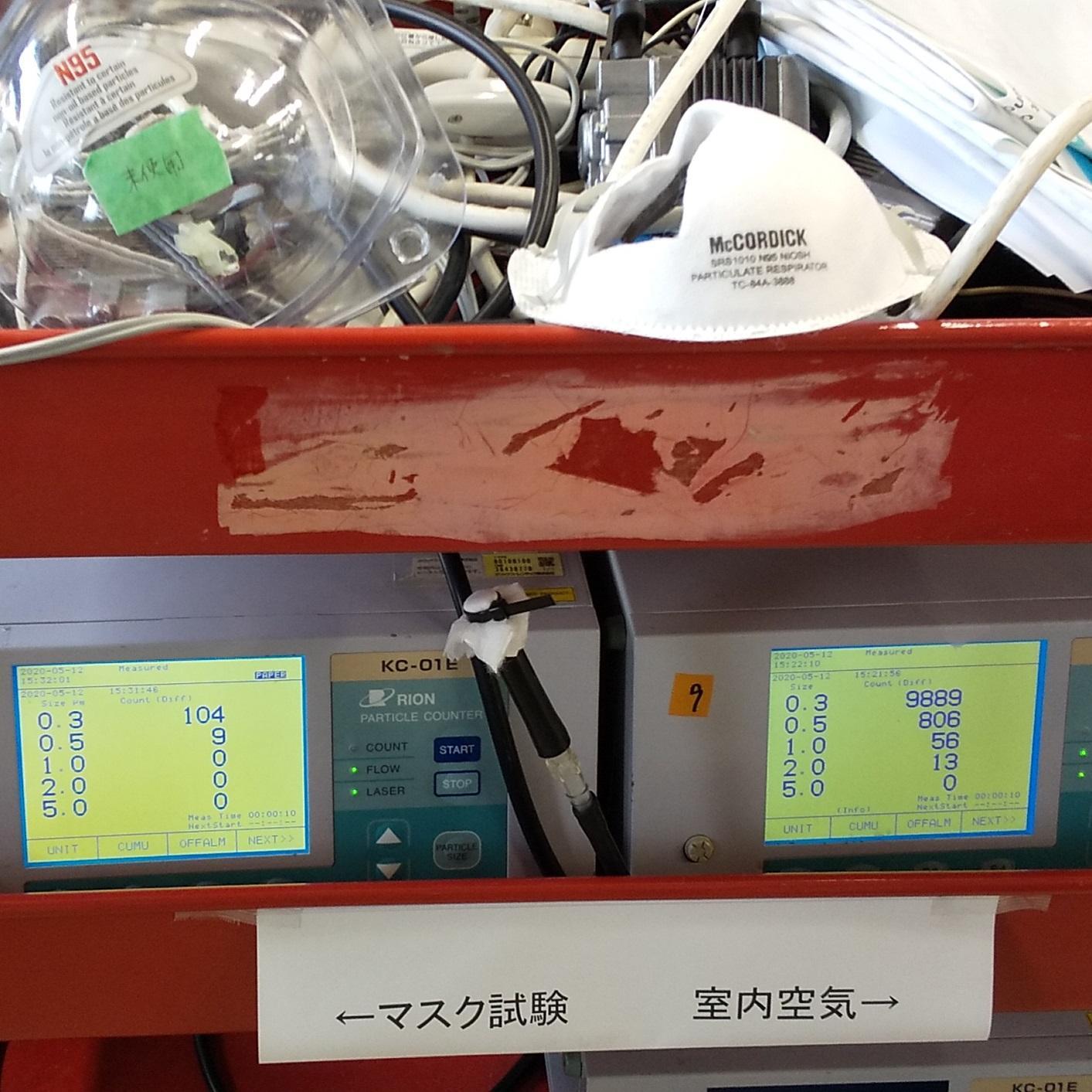- Home
- News
- Researchers
- 2020
- Release of results on the effectiveness of masks at capturing particles
News
About the project
Although there are many different opinions on the effectiveness of masks as a measure to prevent infectious diseases, some of these arguments are not based on scientific evidence. The basic and most important function of a mask, "capturing particles," was focused on in this project, and through the provision of the results of various experiments, scientifically science-based information on the meaning behind wearing a mask is being shared with many people.


The following is a summary of some of the experiment results and observations based on these. Wearing a mask alone does not prevent infections, but it is thought that wearing a mask is effective in reducing the spread of infectious diseases.
- Surgical masks are highly effective at capturing particles.
(However, if the mask is not in close contact with the face, its effectiveness is reduced.) - Masks reduce the droplets and particles exhaled from the mouth.
- Particles smaller than the mesh of the mask are also captured by the mask.
(Although not 100% of these particles are captured.) - Washing a nonwoven mask with detergent significantly reduces its effectiveness to capture particles.
- Although the effectiveness of cloth masks at capturing particles is low, this can be improved by adding a paper towel, etc.
- When commercial masks are not available, using a paper towel, etc., as an alternative still has some effect in capturing particles.
- 【Information for healthcare professionals】Up to 3 times of vapor or ozone treatments of mask do not show a significant decrease in its effectiveness to capture particles.
Experiment video (YouTube)
List of all experiment videos (YouTube)
Project members
Related links


